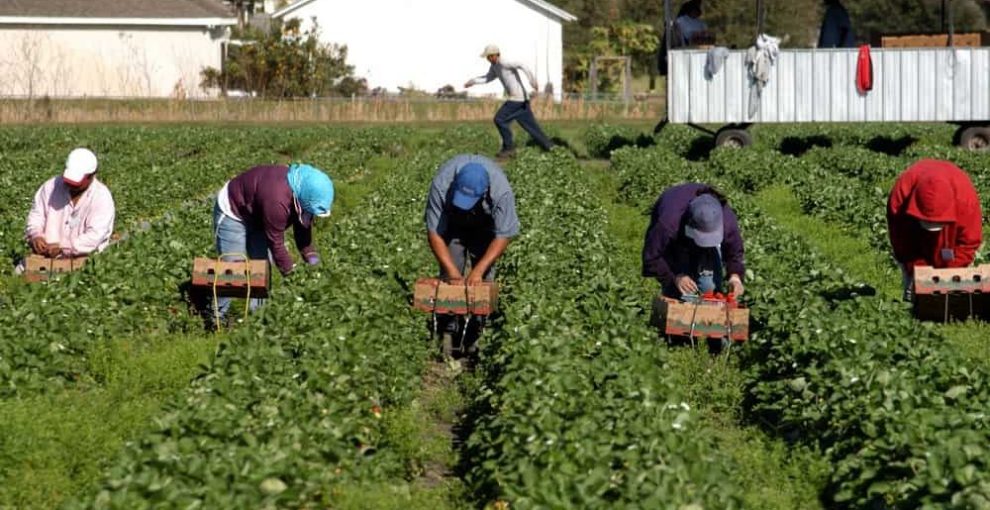Analysis
A law to protect laborers from the heat ignores precarious and gig work
Class violence, pure and simple. The ‘Climate Legislative Decree’ only protects full-time agricultural workers, which excludes 90% of people working in the fields.

The late-coming and hastily cobbled-together decree passed by the Council of Ministers on Wednesday, contained in the so-called “Climate Legislative Decree,” seems to be aimed at protecting only full-time agricultural workers, stone masons and construction workers from the extreme heat, while discriminating against the vast majority of temporary workers considered self-employed, temporary workers and day laborers, who continue to be forced to work, day and night, no matter the weather or how exploitative their condition is, in all the sectors that were supposed to have been “given security” by the decree.
Seasonal workers who work outside and delivery workers are not covered by the decree. The delivery workers used to be acknowledged as the new frontier of digital exploitation, and everyone had encouraging words about protecting them, starting with governments. Now they’ve been forgotten.
The paladins of the public good remember them only when they need some talking points about workers’ rights – and reject them when it comes to enforcing these rights. Until, that is, the platform employing them leaves Italy altogether, as Uber Eats did last month and the Turkish Getir did on Thursday, which will also close its doors in Spain and Portugal. In Milan, this latest move will leave 300 people unemployed.
“The gig economy bubble is a huge bluff,” commented the Deliverance Milan labor movement. So, it figures that the government would rather wait for the layoffs instead of protecting workers. The others who still have jobs, thanks to the Meloni government decree, will remain just as free to drop dead at 45 degrees Celsius in the cities, or slog through a snowstorm in December. Let us not forget this whenever someone opens their mouth again about “social rights.” This is class violence, pure and simple.
“The decree covers only 10 percent of agricultural workers,” said the FLAI CGIL agricultural workers’ union, confirming what il manifesto has been reporting since drafts of the measure began circulating. “Ninety percent of agricultural workers are excluded,” the union noted. In short, “the decree must be revised during the next stages in Parliament.” And not only for agricultural workers, on whom their unions are rightfully focusing.
“The CISOA, that is, the temporary paid furlough system for agriculture,” explained Onofrio Rota (FAI CISL), “covers only permanent workers, who are about 10 percent of the workers in the agricultural sector. A truly effective measure should also protect the remaining 90 percent: temporary seasonal workers who are working in conditions of great vulnerability, guaranteeing crops in a season that is already very difficult due to the effects of bad weather and heat, both on the population and on agricultural production.”
Silvia Spera and Davide Fiatti of FLAI CGIL stressed that the lack of a structural social safety net for precarious workers is increasingly evident. Such a safety net must be put in place, because we are facing a “structural” climate upheaval – but also on the basic principle that the workers come first before the work they do.
On Wednesday, USB and Rete Isis recalled that Gianfranco Incollu, a 55-year-old firefighter, lost his life in Sardinia on Tuesday, July 25. He was working on a six-month contract for the regional agency Forestas.
On Wednesday, July 19, in Montalto di Castro, laborer Naceur Messaoudi died from the heat: aged 57, he had been living in Italy for 30 years, with a regular residence permit. The employer he was working for said he “found him on the street.”
None of them would have received any protection through the paid furlough program and the government’s measures.
Originally published at https://ilmanifesto.it/lavoratori-protetti-dal-caldo-come-no-sono-il-10 on 2023-07-28
